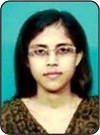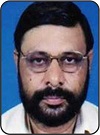Sustainable Development: Environmental, Economical, Social Well-Being for Today and Tomorrow
Abstract
ABSTRACT: In 1987, the World Commission on Environment and Development stated that sustainable development is development meets the needs of the present without compromising the ability of future generations. Sustainable development constantly seeks to achieve social and economic progress in ways that will not exhaust the earth’s finite natural resources. The needs of the world today are real and immediate, yet it’s necessary to develop ways to meet these needs that do not disregard the future. The capacity of our ecosystem is not limitless, meaning that future generations may not be able to meet their needs the way we are able to now. The growth that is unmanaged and unsustained will lead to increased poverty and decline of the environment. We owe it to future generations to explore lifestyles and paths of development that effectively balance progress with awareness of its environmental impact. Sustainable development practices can help us do this; and through education and building awareness, preserving the future is within everyone’s reach. It is our duty to make people aware about the sustainable development and its importance for our future generation. In this paper, we will discuss that education is the only instrument which can provide knowledge on this particular respect to the common people.
KEY WORD: Sustainable development, economic progress, educational awareness, future generations, and quality of life.
ABSTRAKSI: “Pembangunan Berkelanjutan: Lingkungan, Ekonomi, Kesejahteraan Sosial untuk Hari Ini dan Esok”. Pada tahun 1987, Komisi Dunia tentang Lingkungan dan Pembangunan menyatakan bahwa pembangunan berkelanjutan adalah pembangunan yang memenuhi kebutuhan saat ini tanpa mengorbankan kemampuan generasi mendatang. Pembangunan berkelanjutan terus berupaya untuk mencapai kemajuan sosial dan ekonomi dengan cara-cara yang tidak akan menguras sumber daya alam yang terbatas. Kebutuhan dunia saat ini adalah nyata dan segera, namun cara-cara untuk memenuhi kebutuhan tersebut yang tidak mengabaikan masa depan perlu dikembangkan. Kapasitas ekosistem kita tidak tak terbatas, yang berarti bahwa generasi masa depan mungkin tidak dapat memenuhi kebutuhan mereka dengan cara yang kita dapat sekarang. Pertumbuhan yang tak dikelola dan dilestarikan dengan baik akan mengakibatkan peningkatan kemiskinan dan penurunan kualitas lingkungan. Kita berutang kepada generasi mendatang untuk mengeksplorasi gaya hidup dan jalur pembangunan yang efektif dalam menyeimbangkan kemajuan dengan kesadaran dampak lingkungan. Praktek-praktek pembangunan berkelanjutan dapat membantu kita melakukan ini semua; dan melalui pendidikan dan penyadaran, pelestarian masa depan berada dalam jangkauan setiap orang. Adalah tugas kita untuk membuat orang sadar tentang pembangunan berkelanjutan dan pentingnya bagi generasi kita di masa depan. Dalam tulisan ini, kami akan membahas pendidikan sebagai satu-satunya alat yang dapat memberikan pengetahuan tentang hal ini, khususnya menghargai kepentingan umum.
KATA KUNCI:Pembangunan berkelanjutan, kemajuan ekonomi, kesadaran pendidikan, generasi masa depan, dan kualitas hidup.


About the Authors: Sagufta Sahin, M.Ed. is Ex-Student at the Department of Education, Kalyani University, Kalyani, Nadia, Pin-741235, West Bengal, India. Dr. Jayanta Mete is a Professor at the Department of Education, Kalyani University, Kalyani, Nadia, Pin-741235, West Bengal, India. Corresponding authors are: ssahin777@gmail.com and andjayanta_135@yahoo.co.in
How to cite this article? Sahin, Sagufta & Jayanta Mete. (2016). “Sustainable Development: Environmental, Economical, Social Well-Being for Today and Tomorrow” in MIMBAR PENDIDIKAN: Jurnal Indonesia untuk Kajian Pendidikan, Vol.1(1) Maret, pp.1-12. Bandung, Indonesia: UPI Press.
Chronicle of the article: Accepted (January 8, 2016); Revised (February 8, 2016); and Published (March 11, 2016).
Keywords
Full Text:
PDFReferences
Adato, Michelle & Ruth Meinzen-Dick. (2015). “Assessing the Impact of Agricultural Research on Poverty Using the Sustainable Livelihoods Framework: Discussion Paper 128”. Available online also at: http://ageconsearch.umn.edu/bitstream/15926/1/dp02128b.pdf [accessed in Nadia, India: January 15, 2016].
Agyeman, Julian. (2009). “Toward a ‘Just’ Sustainability: A Power Point”. Available online also at: https://www.wpi.edu/Images/CMS/Lecture/WPI2009.pdf [accessed in Nadia, India: January 15, 2016].
Ashley, C. & D. Carney. (1999). Sustainable Livelihoods: Lessons from Early Experience. London: Department for International Development.
Balisacan, M. Arsenio, Chakravorty Ujjayant & Ravago V. Majah-Leah. (2014). Sustainable
Economic Development: Resources, Environment, and Institutions. New Delhi: Academic Press.
Carney, Diana et al. (1999). “Livelihoods Approaches Compared: A Brief Comparison of the
Livelihoods Approaches of the UK Department for International Development (DFID), CARE,
Oxfam, and the United Nations Development Programme (UNDP) and the United Nations
Development Programme (UNDP)”. Available online also at: http://www.start.org/Program/advanced_institute3_web/p3_documents_folder/
Carney_etal.pdf [accessed in Nadia, India: January 15, 2016].
“Category: Boys’ Schools in India”. Available online also at: https://en.wikipedia.org/wiki/
Category:Boys%27_schools_in_India [accessed in Nadia, India: January 15, 2016].
“CGIAR (Consultative Group for International Agricultural Research)”. Available online also at:
https://en.wikipedia.org/wiki/CGIAR [accessed in Nadia, India: January 15, 2016].
Choudhory, S.N. (2012). In Search of Sustainable Development. New Delhi: Neha Publishers &
Distributors.
DfID [Department for International Development]. (1997). Our Common Future: Report of the World
Commission on Environment and Development. Geneva, Switzerland: Department for International
Development.
“Education in India”. Available online also at: http://www.nios.ac.in/media/documents/SecICHCour/
English/CH.18.pdf [accessed in Nadia, India: January 15, 2016].
Ghosh, S.C. (2000). The History of Education in Modern India (1757-1998). New Delhi, India: Orient Longman.
https://sustainabledevelopment.un.org/content/documents/Agenda21.pdf [accessed in Nadia, India: January 15, 2016].
Kashalkar-Karve, Sanyukta. (2013). “Comparitive Study of Ancient Gurukul System and the New
Trends of Guru-Shishya Parampara” in American International Journal of Research in Humanities,
Arts and Social Sciences, Vol.2(1), March-May, pp.81-84. Available online also at: http://iasir.
net/AIJRHASSpapers/AIJRHASS13-140.pdf [accessed in Nadia, India: January 15, 2016].
Otieno, Dorcas. (2013). Environmental Philosophy/Ethics and Sustainable Development. Nairobi,
Kenya: Kenya Organization of Environmental Education.
Rogers, P. Peter, Jalal F. Kazi & Boyd A. John. (2007). An Introduction to Sustainable Development.
London: Routledge.
Sachs, D. Jeffrey. (2015). The Age of Sustainable Development. Washington D.C.: Columbia University Press.
Saigal, Krishan. (2010). Sustainable Development: The Spiritual Dimension. New Delhi: Kalpaz Publications.
UN [United Nations]. (2015). World Population Prospects: The 2015 Revision, Key Findings,
and Advance Tables. New York: United Nations. Available online also at: http://esa.un.org/unpd/
wpp/publications/fi les/key_fi ndings_wpp_2015.pdf [accessed in Nadia, India: January 15, 2016].
“UNESCO and Sustainable Development”. Available online also at: http://unesdoc.unesco.org/
images/0013/001393/139369e.pdf [accessed in Nadia, India: January 15, 2016].
Venkatanarayanan, S. (2013). “Tracing the Genealogy of Elementary Education Policy in India Till
Independence” in SAGE Open, October-December, pp.1–10. Available online also at: http://sgo.
sagepub.com/content/3/4/2158244013510302.fulltext.pdf+html [accessed in Nadia, India: January
, 2016].
DOI: https://doi.org/10.17509/mimbardik.v1i1.1749
Refbacks
- There are currently no refbacks.
MIMBAR PENDIDIKAN: Jurnal Indonesia untuk Kajian Pendidikan, is published by UPI Press in Bandung, West Java, Indonesia.
MIMBAR PENDIDIKAN: Jurnal Indonesia untuk Kajian Pendidikan of Indonesia University of Education disebarluaskan di bawah Lisensi Creative Commons Atribusi-BerbagiSerupa 4.0 Internasional.
Berdasarkan ciptaan pada https://ejournal.upi.edu/index.php/mimbardik/.









